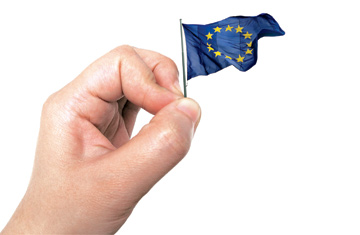
(3 of 4)
But if Europe is to realize its own dreams and those of others, it has to change the way it does business. Acting as a true single bloc would bring greater influence. One of the problems in international meetings, says Jean-Pierre Lehmann, a professor of international political economy at IMD in Switzerland, is that the E.U. is "paralyzed by its members." A senior Asian official describes — with evident exasperation — how at international summits European leaders talk endlessly to each other. "They're very clubby," he says, and it isn't meant as a compliment.
Next, Europeans need to appreciate that ideals alone don't bring you respect. You have to win others to your side. The reality of that hit home — or should have done — at Copenhagen. Europe had done much of the running on global climate-change policy, setting carbon-reduction targets, introducing the first markets in which carbon could be traded, leading the way on exploiting greener energy sources. European leaders arrived in the Danish capital giving the impression that setting an example would be enough to persuade others into making concessions. But the conference took a different turn. A group of developing countries threatened to walk out. With negotiations on the verge of collapse, Obama entered a room where delegates from China were meeting those from Brazil, India and South Africa. They struck a deal and then presented it to Europe and other participants. "It was a global meeting hosted by a European country, in the E.U., in an area where the E.U. had something to offer," says the IMD's Lehmann. "But it was a huge humiliation. Europe was out of the room." "The painful lesson of Copenhagen is that you cannot be taken seriously ... if you are not a serious actor," says Moïsi.
The Peaceful Continent
In a bitter irony, it is one of modern Europe's most cherished convictions — that the force of arms rarely settles political disputes for long — that inhibits it from being a more powerful player. European nations have sent thousands of young men and women to fight the Taliban, but the memory of the 20th century means European public opinion seems unwilling to commit to the war in Afghanistan for the long haul. On Feb. 20, the Dutch coalition government collapsed because of a dispute over when to end the country's deployment. The German government faces enormous domestic challenges in admitting its forces in Afghanistan are there to fight, not to be humanitarian workers in uniform.
To Washington, which knows that the world remains a dangerous place, these attitudes have become a serious concern. On Feb. 23, at the NATO strategic concept seminar, U.S. Secretary of Defense Robert Gates was particularly blunt. "The demilitarization of Europe — where large swaths of the general public and political class are averse to military force and the risks that go with it — has gone from a blessing in the 20th century to an impediment to achieving real security and lasting peace in the 21st." Plenty of European diplomats would agree with him. After the speech one diplomat spoke of an "inertia" among Europeans when confronted with novel threats. "We have to explain to our own public opinion," he said, "the world we live in."
But that requires political leadership, which in much of Europe is lacking. Yes, Britain still sees itself as having a global role; so does France, whose President, Nicolas Sarkozy, has been active on issues from the Georgia war of 2008 to the consequences of a nuclear Iran. But the E.U.'s largest state is absent from most such debates. For the last half of the 20th century, Germany was at the heart of the European experiment. But since the end of the Cold War, it has stepped back from the E.U., regularly taking a different path when Europe attempted a unified policy (notably during the financial crisis in 2008 and 2009), and strengthening ties with Russia, to the chagrin of Britain and France. "Behind the scenes Germany is still pretty much the puppet master in the E.U., pulling many strings," says Ulrike Guérot, head of the Berlin office of the European Council on Foreign Relations. "But sometimes Berlin is deciding not to pull any strings at all now, in which case nothing happens. Germany is starting to become good at avoiding Europe in a very subtle way."
